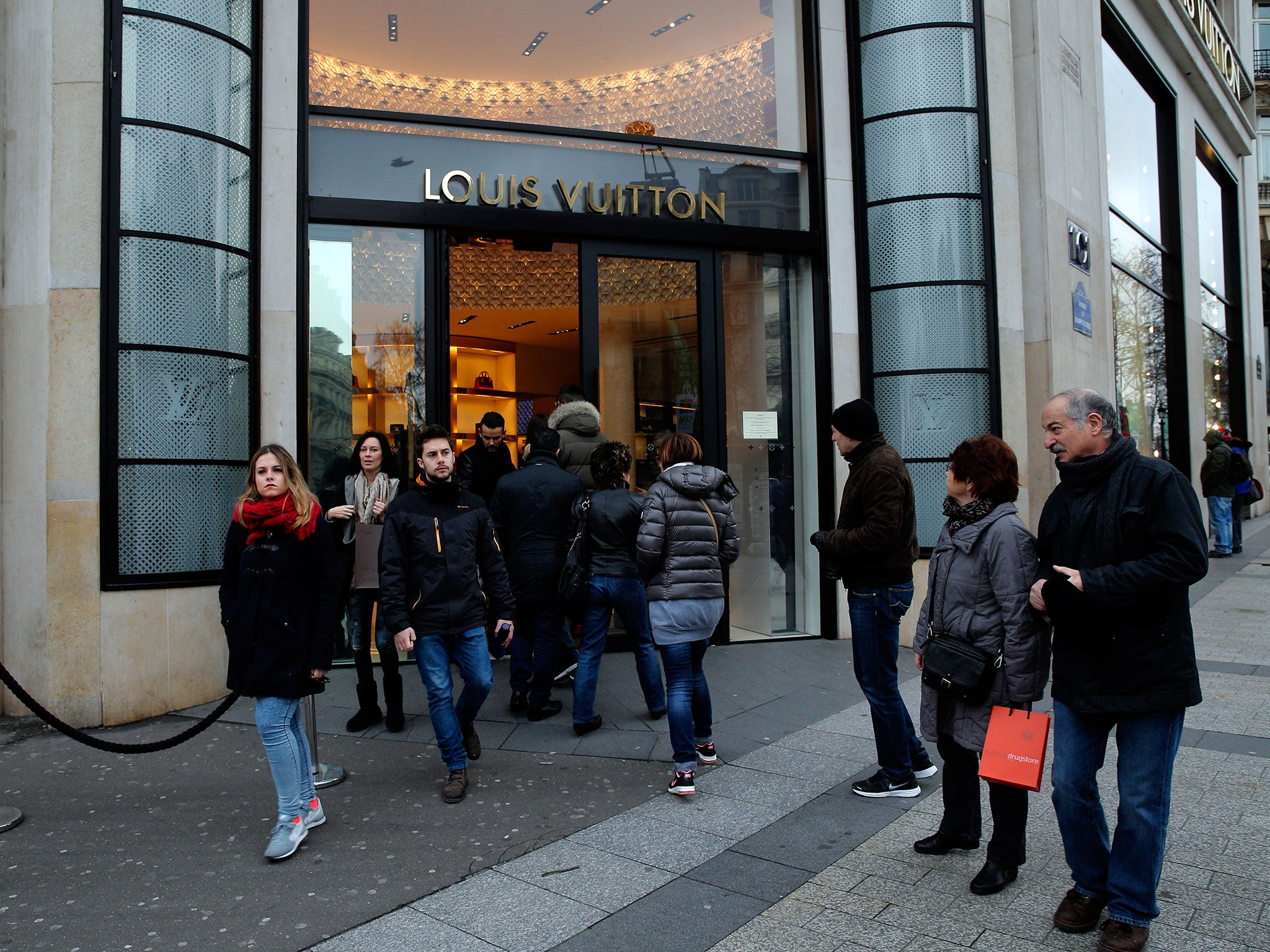France 'enters the modern world' with plan to open shops on Sundays
The relaxation of France’s century-old Sunday trading laws will apply to shops in tourist areas and some out-of-town shopping malls

Your support helps us to tell the story
From reproductive rights to climate change to Big Tech, The Independent is on the ground when the story is developing. Whether it's investigating the financials of Elon Musk's pro-Trump PAC or producing our latest documentary, 'The A Word', which shines a light on the American women fighting for reproductive rights, we know how important it is to parse out the facts from the messaging.
At such a critical moment in US history, we need reporters on the ground. Your donation allows us to keep sending journalists to speak to both sides of the story.
The Independent is trusted by Americans across the entire political spectrum. And unlike many other quality news outlets, we choose not to lock Americans out of our reporting and analysis with paywalls. We believe quality journalism should be available to everyone, paid for by those who can afford it.
Your support makes all the difference.The peace which falls on French city centres and shopping malls on Sundays will soon be no more.
As part of a “job-generating” law likely to be agreed on Tuesday, shops in tourist areas of Paris and other French cities will be allowed to open every Sunday and until midnight on weekdays.
The relaxation of France’s century-old Sunday trading laws will also apply to some out-of-town shopping malls.
The changes, negotiated during an exceptional sitting of the lower house of parliament on Saturday, will almost certainly be approved on Tuesday as part of a wider drive to remove regulatory brakes on the French economy.
The assault on France’s 109-year-old restrictions on Sunday trading has split the ruling Socialist Party. Even the Socialist Mayor of Paris, Anne Hidalgo, whose city arguably stands to gain the most, has opposed the changes proposed by Emmanuel Macron, the reformist, Socialist economy minister.
Mr Macron argued that it was time for France “to enter the modern world” and move towards the kind of Sunday trading now widespread in Britain (but not yet Germany, Austria or Belgium). He was opposed by an unlikely coalition stretching from left-wing trade unions to the Catholic Church, which argues that widespread Sunday trading will destroy the traditional French weekend and fail to deliver the promised new jobs.
The changes are part of a much broader attack by Mr Macron on regulatory red tape in France which, he argues, creates unemployment by giving excessive protection to those in work. The law, which goes to the National Assembly tomorrow, also reduces the privileges acquired over decades by trades and professions ranging from lawyers to driving instructors.
The arguments for and against Sunday trading have been confused by the fact that – as in many aspects of French life – the present rules are a hotch-potch of exceptions and contradictions. Shops on the Champs Elysées already open on Sundays, but big department stores in other parts of the French capital are closed.
The former President Nicolas Sarkozy pushed through a change in the Sunday trading law six years ago. He claimed at the time that he had been “deeply embarrassed” when the US First Lady, Michelle Obama, and her daughters had been unable to go shopping in Paris on a Sunday. His changes – fiercely opposed at the time by the Socialist opposition – created a new pattern of contradictions that has satisfied nobody.
The new rules would create “international tourist zones” where all shops can stay open every Sunday and until midnight during the week. There would be four such zones in Paris including the Champs Elysées and the Boulevard Haussmann, which has the two largest department stores in the capital, Galeries Lafayettes and Printemps. Four other “open-all-hours” zones will be discussed by the government and Paris town hall.
Opponents complained that the changes failed to address what they say is one of the great anomalies in the existing law: some shop workers are guaranteed double time for working on Sundays, while others are not.
Joseph Thouvenel, of the moderate CFTC trade union federation, said yesterday: “Sunday working will not create growth. It will destroy jobs and create an unpleasant society.” He was reading from a Socialist Party statement contesting Mr Sarkozy’s changes in 2009.
Join our commenting forum
Join thought-provoking conversations, follow other Independent readers and see their replies
Comments